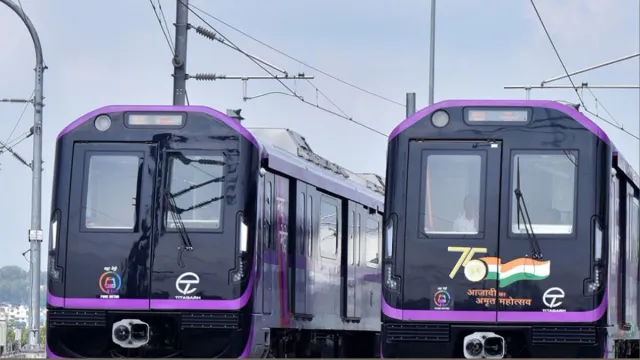- By Kamakshi Bishnoi
- Tue, 19 Aug 2025 10:00 PM (IST)
- Source:JND
The wait for metro services in Bihar’s capital Patna is nearing its end. According to Patna Metro Rail Corporation Limited (PMRCL), trial runs are expected to begin anytime after August 20, with a target to start public operations by September 2025.
The first trial will be conducted on the Priority Corridor, covering the 6-6.5 km elevated section between Malahi Pakadi and New ISBT, which includes five stations, New ISBT, Malahi Pakadi, Khemnichak, Bhootnath Road and Zero Mile/Bypass. Over 90 per cent of the civil work on this stretch has been completed.
ALSO READ: Rahul Gandhi, PM Modi Used Cars With Expired Pollution And Insurance In Rallies? Here's The Truth
During the trial, officials will test the signalling system, train speed, track safety and reliability of technical systems. Only after successful trials and regulatory approvals will passenger services begin.
The trial, originally scheduled for August 15, was delayed due to pending depot-related work, which has now been completed. Preparations for placing the rake on the track are also finalised.
Initially, services will run only on the Priority Corridor, while the rest of the 14.56 km Blue Line (Patna Junction to New ISBT) will open in phases. Of this, 6.6 km is elevated, and the rest is underground. Malahi Pakadi station will serve as the main hub.
Project Progress
- Pocket Casting Work: Segment casting for the metro viaducts is underway.
- Fencing: Installed around sites for safety.
- PEB Column Fixing: Structural columns for stations and maintenance buildings are being erected.
- Cable Tray Fitting: For electrification and signalling.
Power Supply Network
- Receiving Sub Station (RSS): Main power source.
- Auxiliary Sub Station (ASS): Power for stations and facilities.
- Feeder Line: Ensures an uninterrupted supply to trains.
- Depot Line: For repair and maintenance power needs.
Commuters between Malahi Pakadi and New ISBT are expected to benefit most, with reduced travel time, fewer traffic jams and lower air pollution once services begin.
